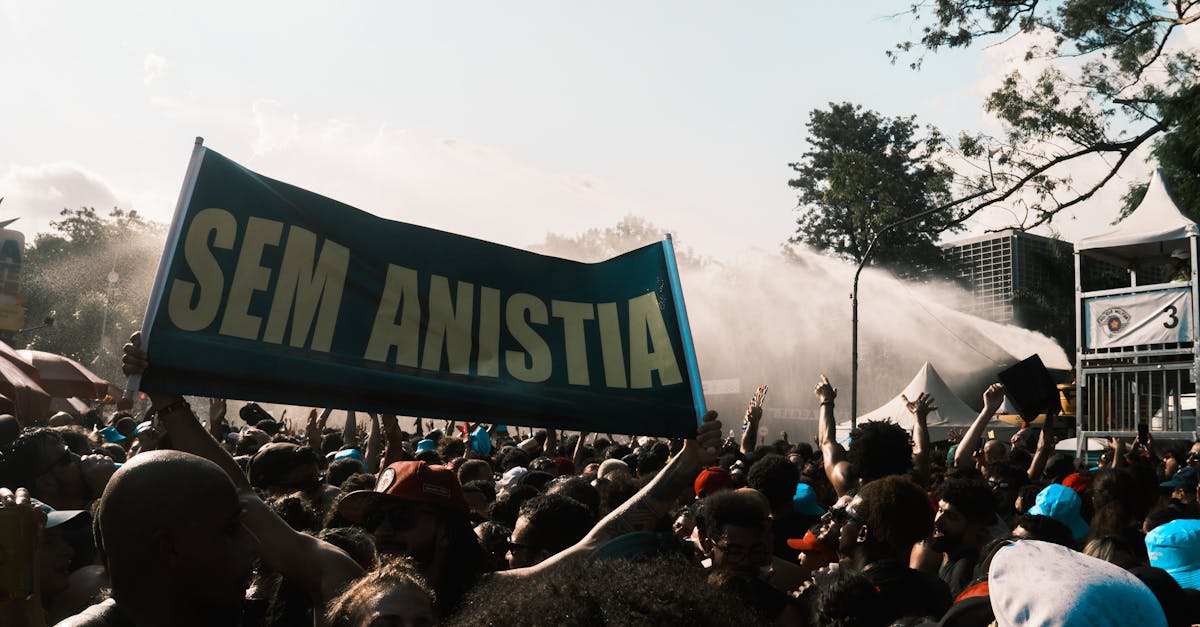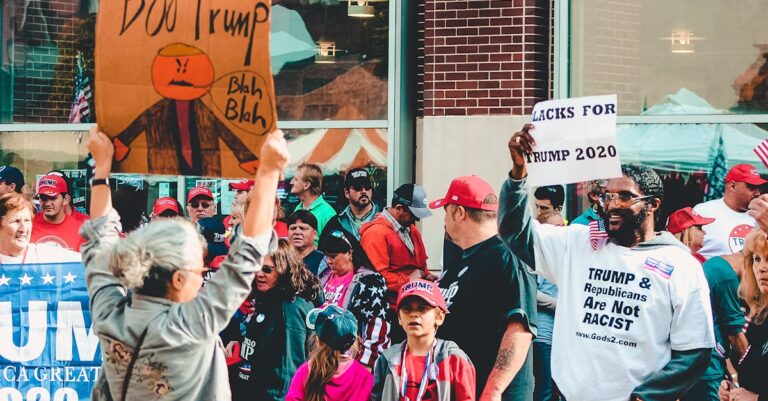
In today’s modern political landscape, voter suppression is a pressing issue that continues to challenge the very essence of democracy. As educators, it is crucial for teachers to not only understand the intricacies of voter suppression but also to empower the next generation with knowledge and tools to combat it effectively.
Protest is a powerful tool in shedding light on voter suppression tactics that disproportionately affect marginalized communities. By organizing peaceful demonstrations and rallies, activists can bring attention to the systemic barriers that prevent certain groups from accessing their fundamental right to vote. As teachers, you play a vital role in inspiring and supporting students to advocate for change through peaceful protest, fostering a sense of civic responsibility and activism.
When delving into the specifics of voter suppression, it becomes evident that the impact is felt most acutely at the local level. Saint Johns, a community grappling with voter disenfranchisement, serves as a poignant example of how restrictive voting laws and gerrymandered districts can silence minority voices and inhibit democratic participation. By highlighting these real-world examples in the classroom, teachers can contextualize the issue of voter suppression and prompt critical discussions on the importance of fair and accessible elections.
Furthermore, incorporating statistics and data into the curriculum can enhance students’ understanding of the widespread nature of voter suppression. By presenting empirical evidence of voter suppression techniques and their detrimental effects on communities, teachers can equip students with the analytical skills necessary to identify and address these issues in their own communities. By emphasizing the role of data-driven advocacy in combating voter suppression, educators can empower students to become informed and active participants in safeguarding our democratic institutions.
In conclusion, the fight against voter suppression requires a multi-faceted approach that involves education, advocacy, and activism. As teachers, you play a pivotal role in shaping the attitudes and beliefs of future generations, instilling in them a deep understanding of the importance of protecting our democratic rights. By raising awareness, fostering critical thinking skills, and inspiring civic engagement, educators can catalyze positive change and pave the way for a more inclusive and equitable electoral system.








Voter suppression is like, a really big issue in today’s world. It’s super important for teachers to teach about it and help kids fight against it. Protests can be a good way to show how unfair it is to stop people from voting. And like, small towns can have big problems with this stuff, ya know? So teachers need to talk about it in class and show how bad it is. It’s also good to use facts and stuff to teach about voter suppression so students know what’s up and can make a difference. Teachers are key in helping students understand and stop voter suppression. We gotta educate
Hey y’all, this is such an important topic! Voter suppression is not cool at all. Teachers gotta teach the young ones
hey this is really important stuff, voter suppression is like a big dark cloud over our democracy. gotta make sure everyone has a fair chance to vote, right? teachers can be like superheroes here, teaching kids about this stuff and helping them stand up for their rights. we need more protests and rallies to shine a light on the sneaky tactics keeping people from voting. and using numbers and data can really show just how widespread this problem is. teachers, keep doing your thing and empowering the next generation to fight for fairness and
ugh, all this talk about voter suppression and activism and empowering students is great and all but like, can we just focus on actually fixing the problem instead of just talking about it all the time? like, action speaks louder than words, people! let’s do something about it already instead of just going on and on about it in fancy words and paragraphs. come on, let’s
This is so important to talk about! Educators really do have a big role in helping students understand voter suppression and how to fight against it. It’s like shining a light on those sneaky tactics that try to stop people from voting. We need more peaceful protests and rallies to show everyone what’s going on. Teachers can
votr supresion is soo bad! it shud not be happening. teechers need to teach
Oh man, voter suppression is like, so messed up, you know? It’s like they’re
yooo, this is ridiculous, like why are we even talking about this, like seriously? I mean, voter suppression is like so wrong and teachers should totally do something about it, you
y’all, this voter suppression stuff is just downright wrong, like why are we even still talking about this in 2021?! 🤦♀️ Teachers, they gotta step up and educate the next gen to
ugh this is so annoyin why do we gotta deal with all this voter supression stuff its like come on just let people vote already geez like seriously we just tryin to make the world a better place and then theres all this drama with makin it hard for people
Voter supression is just so sad, you know? It’s like, people trying to stop other people from voting and that’s just not fair. We need to do something about it, like educate others and stand up for what’s right. Teachers have a big role in all this, they can help
Teachers are so important in teaching about voter supression and activating change. Protesting is like a superpower to bring attention to these issues. Like, when we protest peacefully, it’s like shining a big ol’ spotlight on the
Yo, voter suppression be like trying to keep the cool kids out of the party! But teachers be like, “Nuh-uh, everyone’s invited to democracy!” Let’s rally and protest like it’s the hottest ticket
wow ok this is a really imporant post! voter supression is so bad and we need to do something about it! teachers are so cool cuz they can
Wowza, talk about a rollercoaster of a read! From voter suppression to peaceful protests to data-driven advocacy, this blog post covers it all. It’s like a buffet of social justice issues, served with a side of empowerment for the next generation. Teachers really
yO, this is so not cool y’all. Voter suppression is like, bad news bears, you know? Like, we gotta do something to stop this madness. Teach the kids, empower them, ya know? Like, educate them on
Ugh, this is such an important issue that needs to be addressed right now! Voter stuff is crazy, man. Like, why are they making it so hard for people to vote? It’s
Teachers have a super important role in helping the next generation understand and fight against voter suppression. It’s like shining a light on those unfair things that stop people from voting. By teaching students about real-world examples and using data, teachers can gear them up to make a difference. Encouraging peaceful protests and conversations about fair elections can go a long way in creating change. So, yeah, teachers
Hey y’all, just wanted to chime in on this important topic. Voter suppression is no joke,
Yo, this article really hits home how important it is for teachers to talk about voter suppression and help students understand what’s going on. Like, protesting is one way to make people pay attention to the unfair stuff happening with voting rights. And it’s not just a big national issue, but it affects local communities like Saint Johns too. Teachers can use real-life examples to
Ok so ya, like, voter stuff is super important and we gotta like, make sure everyone gets to vote and stuff. Teachers can help by teaching about voter suppression and
Me not really sure why people wanna suppress votes, like let’s all just get along and vote for pizza as the national food, am I right? But for real, teachers are like superheroes helping students understand the importance of voting and fighting against suppression. Keep on educating and
Wow, this blog post really sheds light on the important issue
Y’all, voter suppression is like trying to fit a square peg in a round hole, but with fewer shapes and more rights being trampled on! Teachers, you’re like the superheroes of education, arming the next generation with knowledge to fight the bad guys of democracy! Let’s protest peacefully, educate with stats, and show the
Wow, voter suppression sounds like a real party pooper for democracy! Teachers gotta be like superheroes, teaching kids about this stuff and arming them with knowledge to fight the bad guys. Let’s hope our future
Woah, this blog post really opened my eyes to how important it is for teachers to educate students about voter suppression! We gotta make sure everyone can vote and have their voices heard, ya know? And, like, using peaceful protest to shine a light on these issues is